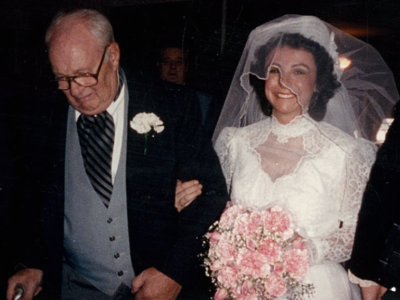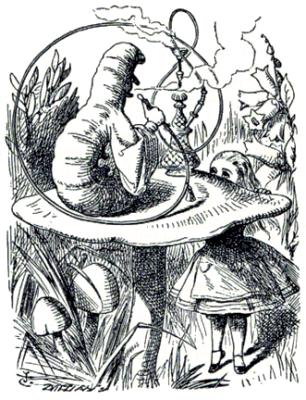This post describes, my recovery from the loss of my wife to a degenerative neurological condition called Huntington’s Disease. She was healed of this condition when she went to live with our Heavenly Father at 2:30AM, the 10th of January 2021. You can read the announcement here.
Or if you would like to read our story from the beginning, you can start with: How We Got Here…
We are finally getting settled in.
We have a clothes washer and dryer, and a refrigerator, though not without the odd trial. For example, our washer and dryer were supposed to be delivered between 6 and 8 pm. The folks from Lowes finally showed up about 9:30 pm. Then when they plugged it in, the dryer didn’t work – the lights wouldn’t even turn on. The “installers” told me that the outlet was probably dead, so the next day I had an electrician come out to check the 240v outlet. When he found out that it was “hot,” he checked the electrical connections in the back of the dryer pro bono. This is what he found.

Well done, Lowes, well done! Actually, I’m just glad nobody got electrocuted. The connection that is hanging free is one of the two powered leads and the cover that went over this terminal strip is a piece of galvanized steel.
All I need now is a bed to sleep on. Maybe next week…
An exciting piece of news is that I am going to be on the radio March 19th to talk about caregiving. The way it came about is that I always listen to a local radio station (KATX) on my way in to work. Every day they have a couple of interview segments where they talk to someone in the community about some matter of importance. So the idea occurred to me that maybe there are people in the area who are dealing with neurological conditions, who might benefit from my experience, so I called the station to talk with someone about my idea.
Now to give you an idea of how small this station is, they don’t have a receptionist to field calls. Instead, whoever is on the air right then answers the phone. Consequently, when I called, the fellow who picked up the phone was the very guy that I needed to talk to. We talked during a record and a pre-recorded news program, and he agreed that it was a great idea. So he is going to interview me on the air.
❦ ❦ ❦ ❦ ❦ ❦
One of my favorite books (Hitchhiker’s Guide to the Galaxy) posits in its opening pages that our lives are, for the most part, spent trying to answer the Big Three Questions:
- Where do we come from when we’re born?
- Where do we go when we die?
- Why do we spend so much time in between wearing digital watches?
Beneath the obvious comedic intent of the last question, there is a rather profound idea in play that, put more simply, questions the point of our lives:
For the “lucky” few who manage to make it through life with no major upsets, the question of meaning may be successfully avoided for years, perhaps an entire lifetime, though an interesting discussion might be had as to whether such a life constitutes a great blessing or a rather curious curse.
In any case, however, for caregivers and patients there is no need for such analysis as the thoughts questioning the meaning of our existence are disturbingly common. I imagine Janet lying in her bed and wondering about the meaning of her life. She worked so hard for so many educational and political causes that are falling apart in 2021. Thankfully, she didn’t live long enough to see men pretending to be women eviscerating women’s sports.
The way I tried to address the issue was to collect and surround her with letters and mementos that spoke to her accomplishments – which she really appreciated. She had me read one letter and the acknowledgements it contained to her over and over again.
And for my part, I often had feelings that mirrored hers. For instance, it wasn’t one of my prouder moments, but occasionally the question would come up, “Did I really work hard for all of those years building a professional career just to end up changing my wife’s diapers?” There were many times when I would feel underappreciated and underutilized. And then, one day there were no more diapers to be changed, so what now? What is the purpose that I am to live for now?
One problem people can have with finding their purpose post-loss during grieving is that many didn’t know (or recognize) what their purpose was to begin with! Last Sunday in church, the minister talked a lot about our purpose in life and that each of us does have a divinely-designated purpose which sometimes remains constant throughout life and sometimes changes as the circumstances around us change.
In years past, it was common for people to think in terms of having a “calling” to certain professions like being a member of the clergy, a lawyer, doctor, or teacher. Unhappily for society, with many people today, such labels may tell us about what a person does, but very little about who they are. A concept that we seem to have lost is that someone’s character (who they are), should inform our judgments about whether we should believe or trust what they say and do. Too often the question simply boils down to, “Do they agree with me?”
But all this got me thinking, if I really do have such a purpose, it follows then that everything that happens to me is either preparing me for the work ahead, or is an opportunity for me to practice my calling now. With even a cursory consideration of nature it is plain to see that nothing is lost or wasted. It is reasonable, therefore, to assume that the same should be true of the experiences I have. They are all good for something – even if it is only to teach me: “Don’t do that again!” (See for example, Rom 8:28)
So how am I to go about identifying or renewing a sense of purpose in the midst of all the emotional clutter that at times obscures my sight and clouds my vision with grief?
The first part of the answer is to stay awake and aware of what is going on around me. One of the ways that I learn what to do is to notice what needs to be done, and then to take that as a personal mandate to get involved. For example, I know a woman who makes little felt dogs to raise awareness and to raise money for research towards the cure of a degenerative disease. Or, there are people I know who take on praying for people who are in need of support. Or maybe even volunteering to talk on the radio about caring for a loved one with a degenerative neurological condition works. No act is too small if it fills a real need.
The next thing I can say is, don’t forget to consider what you find fulfillment in doing. When working in your calling or purpose, the experience is unmistakable. The professor and mythologist Joseph Campbell expressed this point simply as, “Follow your bliss.” But you need to understand his usage of language. “Bliss” is not just being happy, very happy, or even mind-bogglingly, extreme, over-the-top happy. Bliss is the experience of knowing that you are in the right place, doing the right thing at exactly the right time. Sometimes people talk about being “in the zone” where they lose track of time and everything outside of that one task – that can be one expression of it.
Finally, there is the goal to practice your purpose or calling (as I mention in the title) on purpose and with intentionality. For me, this point means God shouldn’t have to hit me upside the head every single time to get me to understand. At some point the goal should be to pursue what is right consciously and deliberately, without the need for a spiritual carrot or stick.
In Christ, Amen ☩
❦ ❦ ❦ ❦ ❦ ❦
A prayer for when you are feeling purposeless…
“Blessed are You, Lord God, King of the Universe. It is right that I should at all times and in all circumstances bless You for Your plans and concerns for the cosmos and all its inhabitants. But today I want to bless You especially for the plans which You formulated for me and for my blessing. Too often I need to be compelled and driven to do what is right – and even what is right for me. Teach me how to trust You and follow in Your ways. Teach me how to go about living your purpose. I ask all these things, trusting in Your long-suffering loving-kindness. Amen.”


